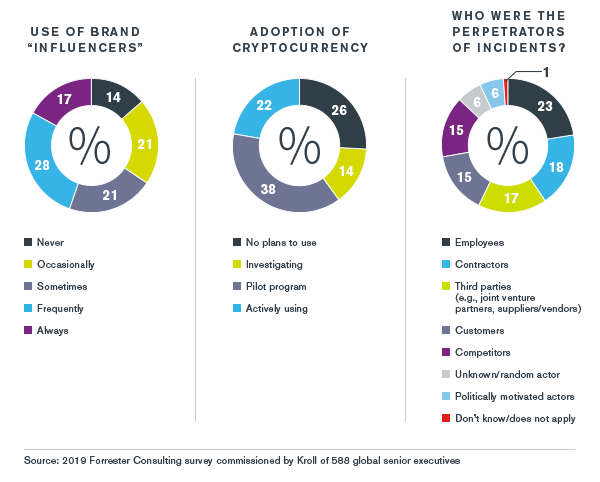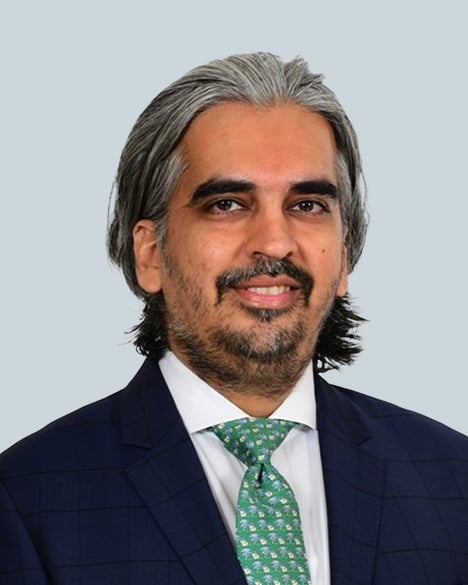India’s role as a global IT hub, its geopolitical importance and its vast population of digital users serve to amplify the attention paid to many forms of risk there. India’s corporate leaders, for example, are much more likely than respondents in other countries to prioritize the prevention of counterfeiting (76 percent vs. 58 percent globally) and are among the most likely to fight money laundering (78 percent vs. 62 percent globally). They are also acutely concerned about adversarial social media (81 percent vs. 63 percent globally), an apprehension that undoubtedly grew during the heated national election campaign of May 2019, in which social media played a sizable part. At the same time, a large share of respondents in India give high marks to the detection capabilities of their social media monitoring (84 percent vs. 71 percent globally).
The frequency of threats actually experienced by Indian organizations is broadly in line with global averages—with one notable exception: Significant data theft has affected 41 percent of Indian companies in the past year (vs. 29 percent globally). The country has recently been the setting for numerous high-profile data incidents, increasing organizations’ awareness of and emphasis on cybersecurity. This may be one reason respondents in India are more likely than the global average to say that their cybersecurity systems are effective (88 percent vs. 81 percent globally).

Whistleblowing reports are on the rise in India, perhaps helped by the role of whistleblowers in bringing to light recent well-publicized corporate fraud events and by the expectation of stronger legislative protections. While respondents in India assess their whistleblowing detection mechanisms as effective or very effective significantly more often than respondents do elsewhere (78 percent vs. 66 percent globally), continued employee training on whistleblowing procedures and protections is needed, as potential whistleblowers can be deterred by uncertainty and fear of repercussions.
The vigorous debate in India over cryptocurrency may be one reason why 26 percent of respondents (vs. 19 percent globally) say they have no plans to use this new financial platform.
With China to the country’s north and Pakistan to its west, India’s geopolitical risks are very much on the minds of its corporate leaders. Indian organizations are more likely than average to report having been affected by tariffs or trade wars (71 percent vs. 54 percent globally), restrictions on foreign investment (62 percent vs. 47 percent globally) or newly imposed sanctions (66 percent vs. 47 percent globally).
In line with the high sensitivity of respondents in India to current threats, those respondents are also more keenly focused on risks that may occur in five years’ time. A much larger percentage of respondents in India than anywhere else worry about market manipulation through fake news (76 percent vs. 59 percent globally); respondents there also evince more concern than those elsewhere about military conflict (69 percent vs. 51 percent globally), and have a high level of concern over a breakdown of intergovernmental mechanisms for dispute resolution (71 percent vs. 61 percent globally).
